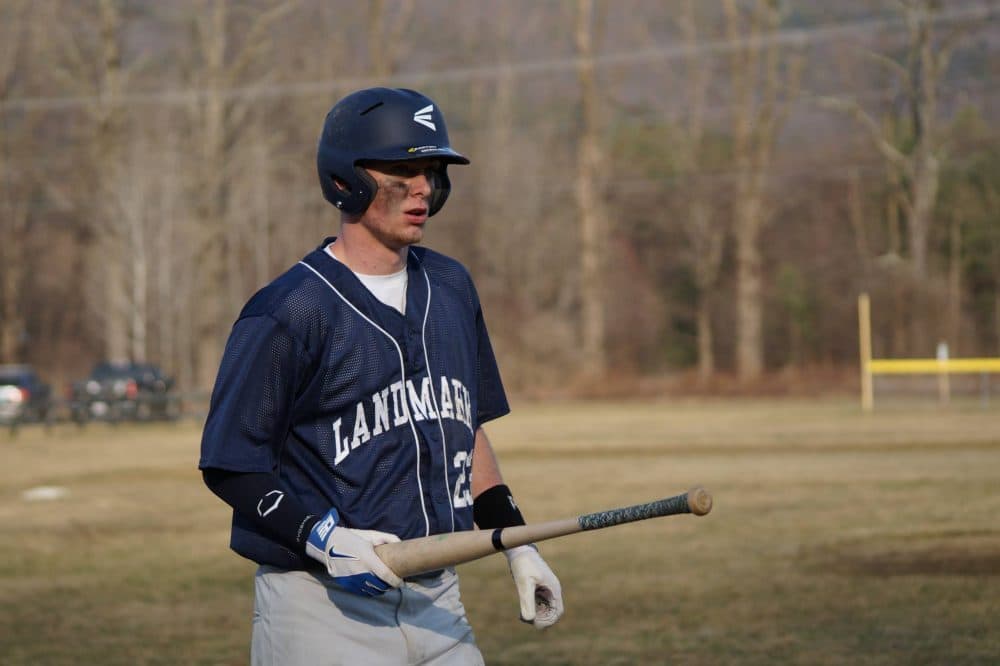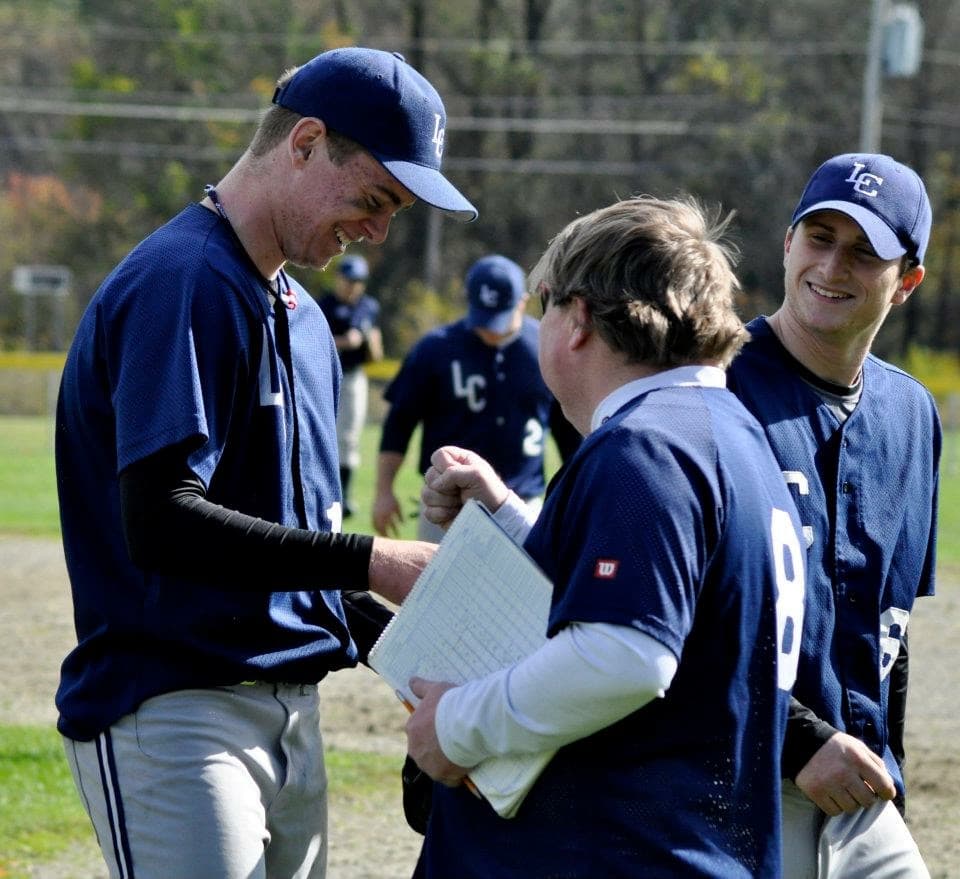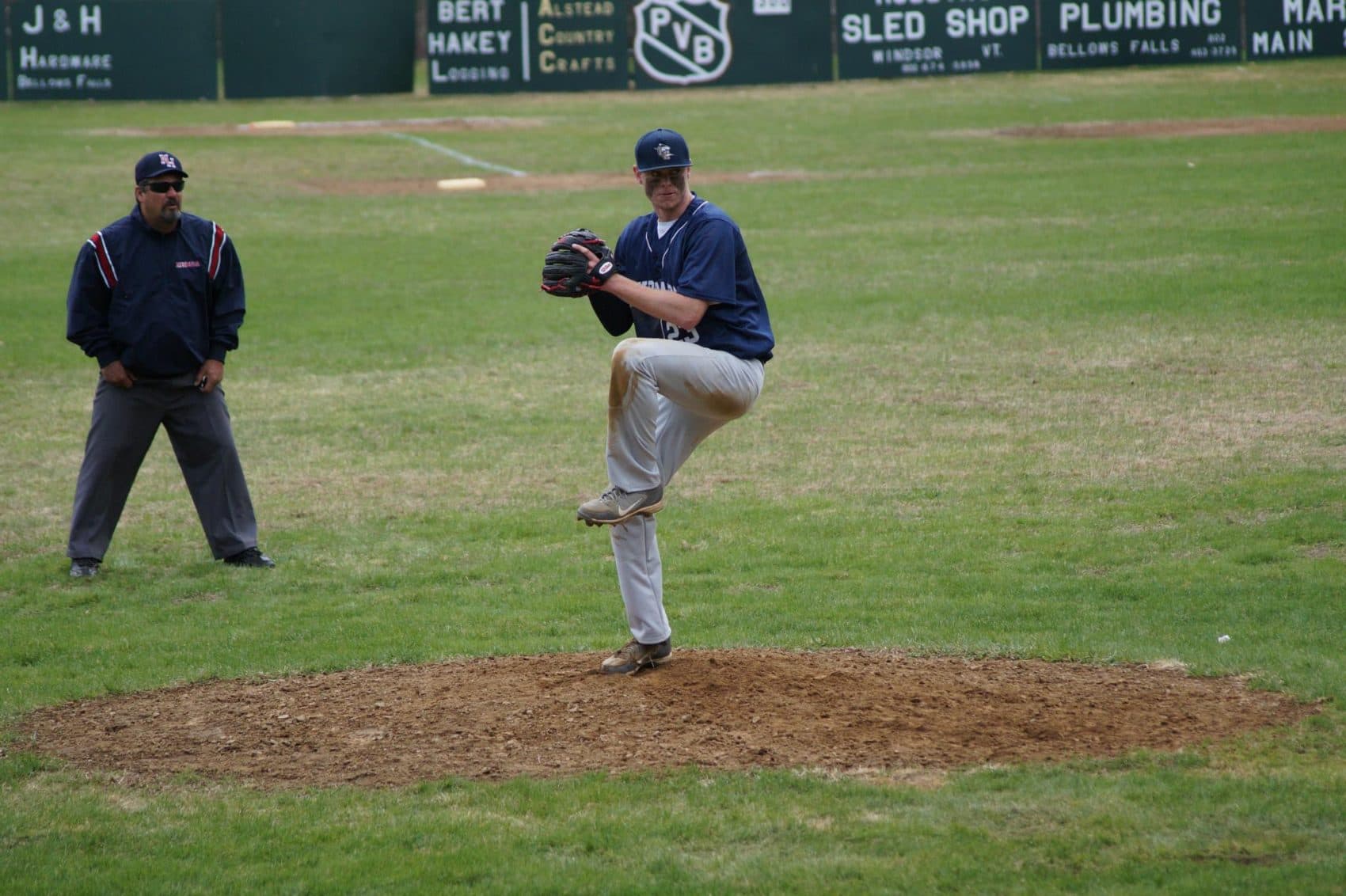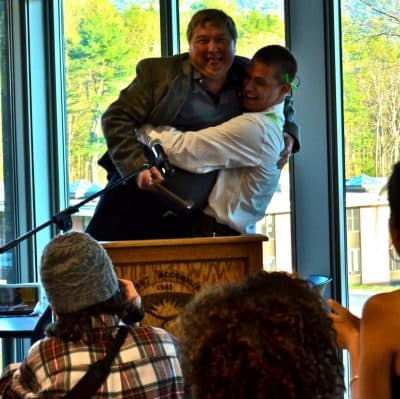Advertisement
Ballplayer With Dyslexia Finds 'New Beginning' Chasing Baseball Dream

About 20 years ago, when he was just a toddler, Pat McKenna was diagnosed with dyslexia. He grew up in the sleepy Massachusetts town of Millis.
"I had a very hard time of focusing, getting my school work done," Pat says. "It wasn’t that I didn’t want to. It was just that I was so stressed out from not learning the material as fast as other kids."
People with dyslexia struggle with reading and spelling. Even though they’re often very intelligent, the disorder can lead to all kinds of academic and social problems. Pat struggled through years of daunting schoolwork under teachers who were sometimes unsympathetic and unhelpful. And when he did get help and support, it was often embarrassing.
"I used to take my tests outside the classroom. It was called the resource room. And it was just that dreadful experience," Pat recalls. "They would have an aide come and get me, and knock on the door and come in. And people would make fun of me. And it was frustrating, because I didn’t understand why people were making fun of me. I’m just getting help.
"I used to hate the red pen. I’d cringe when I saw the red pen come out, because red just established to me that — it’s not blood, but that’s wrong. Why can’t it just be a different color? Like, I hated red. I hated it [with] a passion. Because that was just memories I had of struggling. Just...the red pen."
Using Sports 'As A Tool'
One day, when Pat was in seventh grade, he had a math test. He really wanted to pass it, so he studied every day after school with his math teacher.
"And I just failed this math test," he says. "And I found out I failed it right before gym class. And I went into that gym, and I was so upset. And we played floor hockey. And I just released all my energy. And after that gym class, I wasn’t thinking about that math class. And I kind of knew right at that moment that, 'Wow, you know what? Like, maybe when I’m having a bad day in school or socializing and stuff, I’ll go work out or go play basketball, go play baseball.' I used that as a tool. It made me a better student."

Playing on the Millis High School basketball, baseball and golf teams did help, but Pat still struggled in the classroom.
"Because there are some times that I wouldn’t answer questions, and it wasn’t because I didn’t want to," Pat says. "It was just that I was so focused on trying to learn the material when everyone’s already learned the material and getting the answers."
Pat began to develop his own coping strategies.
"Once I saw someone raise their hand, I'd have a tennis ball, and I’d whip it at them. So it’d distract them," Pat remembers. "So they’d be like 'Who threw the ball at me?' Everyone’s attention would be on Johnny on the left, saying 'Who threw the ball?' And it’s just me raising my hand."
Pat would use those extra few seconds to absorb what was on the blackboard so he could formulate an answer.
"And I did those things to help me be competitive, and [show] the teacher that I’m trying," he says. "And, yeah, it wasn’t a good thing. But in the same sense, it was good for me. I needed to do something. I needed to survive somehow."
Advertisement
Pat did survive high school. He graduated in 2011.
"It was frustrating because I didn’t understand why people were making fun of me. I’m just getting help."
Pat McKenna on being bullied in school because of his dyslexia
A Leader At Landmark
"I graduated high school with a sixth grade reading level. And, like, how do you help kids like that?" Pat asks.
Pat and his family already had a possible answer to that question. They had sent him to a summer program run by Landmark College in Putney, Vermont, which specializes in teaching students diagnosed with learning disabilities, including dyslexia.
"I’d never in my life put academics before my athletics," Pat says. "And I did at that moment when I said, 'You know what? Let me go to Landmark. I feel comfortable here.' "
So Pat enrolled in the fall. He joined the baseball and basketball teams.
"That first practice I saw, he was a real frustrated human being," says John Wood, resident dean at Landmark College and Pat’s baseball and basketball coach.
"I had to pull him aside, because he was being way too overaggressive, pushing and shoving. And I pulled him out in the hall, and I explained that we weren’t gonna treat him as somebody who was 'dumb' or 'stupid,' or talk to him loud or slow because he couldn’t understand. And when I explained to him that this was a new beginning, and that he didn’t have to be that way, I immediately saw somebody who was gonna work incredibly hard on the playing field and in the classroom."

But coach Wood began to see more than just a hard worker. At the team’s first scrimmage, a player on the other team began to shout at Pat and his teammates.
"The kid said the N-word to one of the players on my team. And he called us 'retarded,'" Pat recalls. "And that word is such a big word that a lot of kids with learning disabilities got made fun of. That word is so powerful. And the player on my team flipped out. And I just grabbed him and bear-hugged him and brought him outside. I wanted him to realize, like, 'Hey, that’s just noise. Don’t let that affect you, man. Like, don’t let that affect what you have here, what you need to be in the next 4 years.' "
Coach Wood named Pat McKenna captain of the basketball team and, shortly thereafter, of the baseball team. Pat said he had never before thought of himself as a leader.
"No. I was always the kid in middle school and high school in the back of the group, getting picked last," Pat says. "They’d go, 'Oh, Pat’s a good athlete, but he’s just, like, he’s just not all there.' But I was getting picked first in everything at Landmark. I didn’t know I was a good leader. Coach Wood really showed that to me."
"He was a natural for that," Wood says. "I’ve never had a player in either sport in 25 years that pushed themself so hard. He would shake hands, he would pat guys on the back, he would tell them when they made a good play."

Help In The Classroom
In the classroom, Pat began to get the kind of help he had always needed and wanted. His freshman English teacher began by trying to help Pat slow his brain down as he read his own writing.
"And the teacher’d be, like, 'OK, read that back,'" Pat remembers. "So pretend the sentence says, 'The dog and the cat walked to the park.' She’d go, 'OK, read it.' 'The dog and the cat and the fish walked to the park.' 'Pat, "fish" is not on the paper.' So I was putting words in that weren’t even in there. They really just broke me down step by step. It was unbelievable. I mean, I just struggled all my life. Now I’m going here and getting so much help, and it was overwhelming. It really was. There was times that I felt, 'Why do I deserve this?' "
Pat said he cried when he scored his first 100 on a test.
In three years at Landmark, Pat was named MVP of the basketball and baseball teams. He graduated in 2014, and had done well enough to move on to Notre Dame College in Ohio, where he earned a bachelor’s degree in special education. He maintained a 3.0 GPA there without the comprehensive support system he had at Landmark. And he pitched for the baseball team. Arm problems limited him to only one inning at Notre Dame. Not much of a stat line.
But he didn't care. "I wanted to play professional," Pat says.
Chasing His Dream
Last summer, Pat was invited to spring training by the Roswell Invaders of the Pecos League. He pitched two games, but was quickly traded to the Bakersfield Train Robbers. He pitched in one game there before getting released.

Pat is working out near his home in Millis and putting his special ed degree to good use. He’s working as a counselor at a Boston area school that helps kids with emotional, social and academic issues. He’s been invited to play this summer for the Garden City Wind, a Pecos League team in Kansas. He wants to keep playing and take pro ball as far as he can. No wonder. Pat once told John Wood that sports had saved his life.
"And I almost cried, because his participation in sports has maybe not saved his life, but it’s created a life that is far different than what it would have been otherwise," Wood says.
Pat McKenna can dream big now, in part, because his coach and teacher accentuated the positive.
"He really never said 'weaknesses,'" Pat says. "He kind of said 'things you need to improve on.' Those are two different words. He’s just the best coach I’ve ever had, still to this day."
This segment aired on January 27, 2018.
